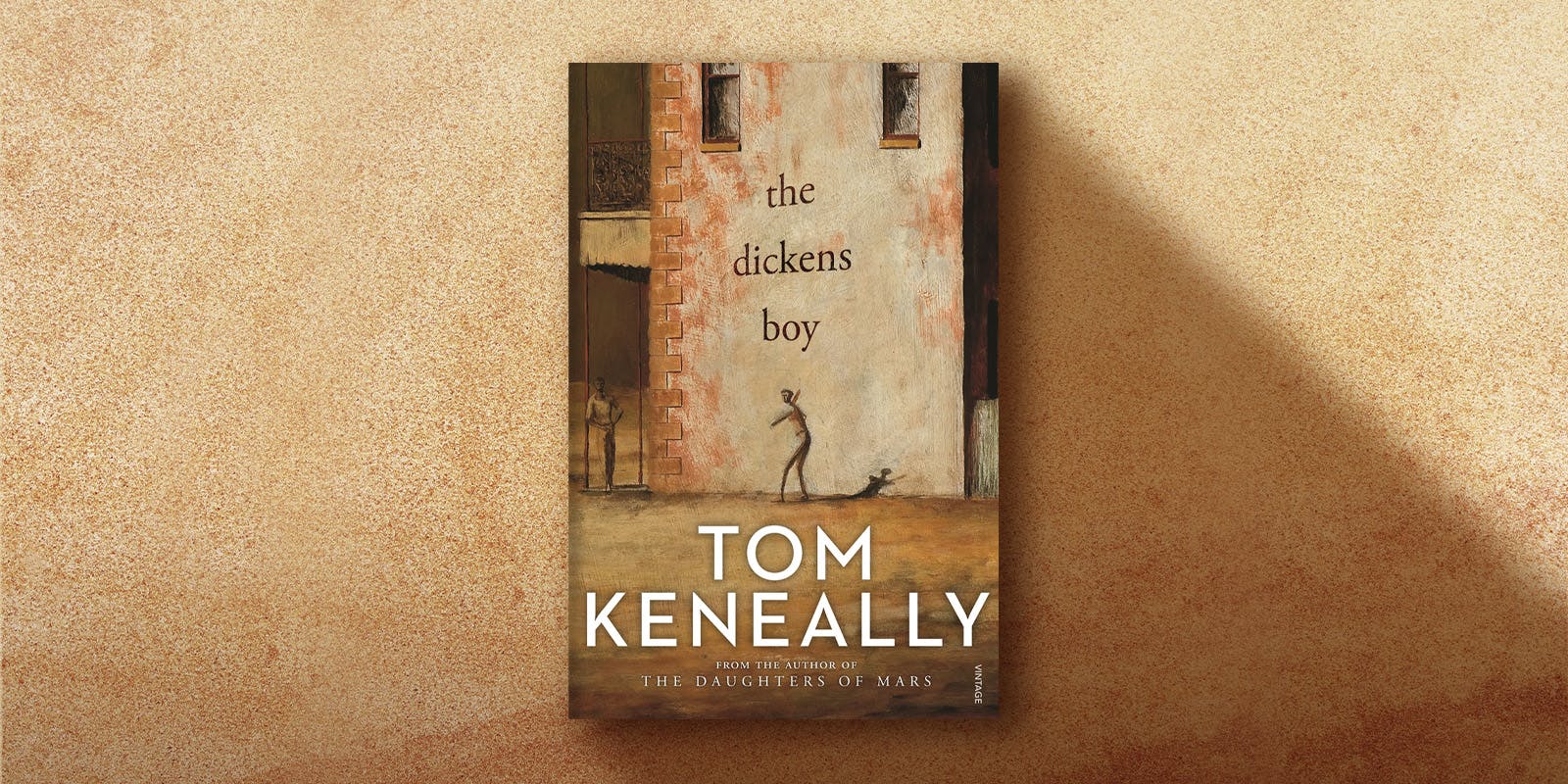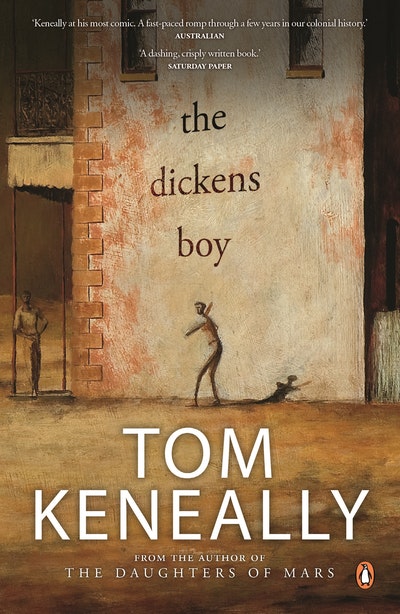Transport your book club to 1860s Australia, with Tom Keneally's The Dickens Boy.
When Plorn, aged sixteen, disembarks in Melbourne in 1868, he is carrying a terrible secret: he has never read a word of his famous father Charles Dickens' work. Among the cricket tournaments, horse-racing, sheep-droving and first encounters with Australian women, Plorn meets extraordinary people as he works to prove himself and escape the shadow of his father. Ready to take your book club on this rollicking journey? Saddle up, and use the questions below to get the conversation started.
Discussion points and questions:
- Tom Keneally’s work – from Schindler’s Ark to The Dickens Boy – has been described as ‘taking historical figures and events and reimagining them’. How do you describe historical fiction and what do you love about it?
- As a child were you exhorted ‘to apply yourself’, or indeed have you expressed this plea yourself to a child? What is behind this sentiment? Do you believe Charles Dickens was intent on producing exceptional offspring, or were his motivations more selfish?
- If Charles Dickens, or indeed any renowned author, was your parent, would you read their work? Why, or why not? How heavy a burden do you think this was for Plorn to carry?
- What do you read into the differences of opinion between Alfred and Plorn about the guv’nor?
- In discussing the work of Australian novelists, historian Tom Griffiths writes about ‘the intriguing dance between history and fiction’. He views it as ‘intertwining of history and fiction in a quest for understanding’. Other historians see this ‘dance’ as a distortion of the historical record. Where do you sit in this continuum, particularly in relation to The Dickens Boy?
- Dickens' work explored class and industry and appealed to a broad audience, across continents at a time that travel and leisure were available to only a small portion of the population. Have you read Dickens’ work? Would you recommend new audiences read it?
- Australians like to believe that class is not entrenched in our daily lives. In Keneally’s storytelling here, we see people from all parts of life pursuing individualism. Why do you think Keneally elected to tell his story in this way? And does it read authentically?
- Alfred and Plorn did spend their adult lives in Australia. Did you look up the rest of the story?













